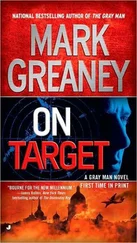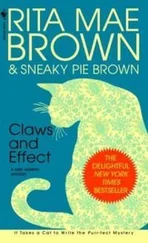It was quiet in all three headsets for a moment. Then Ding said, “John? That look right to you?”
Clark understood what his second-in-command meant, but instead of revealing what he was thinking, he put it as a challenge to Driscoll. “Sam? What do you see?”
Driscoll adjusted his eye in his scope, looking at the empty table, the coat over the back of Hazelton’s chair, the briefcase on the other chair. He looked at the other tables in the restaurant, the well-heeled clientele seated or milling about. After a moment his eyes went back to the briefcase. He said, “If something was so important in that case that he refused to pass it to his contact, why would he leave it unattended at the table while he goes to take a leak?”
Clark said, “He wouldn’t.”
“Then the case is a decoy.”
“That’s right.”
“Meaning . . .” Driscoll had it in another second. “Hazelton isn’t coming back. He suspects surveillance on the front so he’s slipping out a rear exit.”
Ding confirmed this with “The old dine-and-dash routine.”
Clark said, “Bingo. I’m going to head through the restaurant and come out the back. It’s a north-south alley, but his hotel is behind us. You two stay on overwatch and keep an eye on the intersections to the north and south. Unless he can teleport, we’ll pick him back up.”
—
In the tea shop Clark dropped a few wadded dong notes on the table, paying for a drink that made his stomach churn, then he grabbed his jacket and headed toward the Lion d’Or across the street.
He’d just stepped off the curb when he saw something that made him pull up short. He backed onto the sidewalk, then looked around in all directions.
Softly he spoke over the communications net. “Ryan. Hold position.”
—
Jack Ryan, Jr., had been moving up Dao Cam Moc, but on Clark’s order he stopped. “Holding,” he replied. He turned toward the alcove of a closed electronics retailer and pretended to window shop.
“What’s your location?” Clark asked.
Jack looked down to his phone to a map of the area. Tiny colored dots displayed the position of the four men on the team, or more precisely, the position of the GPS tracker each man wore under the belt loop in the small of his back. Clark’s green dot was two blocks to the southeast, still in the open-air tea shop.
Ryan said, “I’m two blocks northwest of your poz.”
Over the earbud Clark explained himself. “I’ve got eyes on four unknowns on motorcycles approaching from opposite ends of the street. They look like a team.”
A moment later Chavez, who was still on the roof with his camera, transmitted. “Black Ducatis?”
Clark said, “Roger that. They came from opposite directions and have different clothing, but it looks like they are riding identical bikes and wearing identical helmets. No coincidence.”
Ding picked all four bikes out of the traffic below. It took him several seconds, because they were spread out. “Good eye, John.”
“Not my first visit. I know when something doesn’t look right around here. Jack, I want you to continue north of your poz. If he takes that alley all the way through the district you can get ahead of him when he comes out on Pham The Hien, but only if you double-time it. Watch for these bikers, don’t let them catch you eyeing the subject.”
Ryan was still pretending to look over a shelf of high-end cameras in the shop window. He felt the blood pumping through his heart for the first time on this trip. His boring evening was suddenly building in intensity.
Jack took off in a jog. “On it. I’ll stay parallel to the bikers and get to the mouth of the alley before Hazelton exits.”
Clark said, “Sam and Ding, do what you can to catch up to Ryan.”
“We’re en route,” said Chavez. “A minute to get off the roof, that puts us three minutes behind you, Jack. Keep it loose till we catch up.”
—
Colin Hazelton stepped out into the alleyway behind the restaurant and headed due north, his hands in his pockets.
He was well aware he’d just made a very costly decision. Costly because he wouldn’t get paid for his work over the past four days, and costly because he’d lose his job for his decision to abort. But also costly because he’d left a three-hundred-dollar sport coat and a four-hundred-dollar briefcase behind.
All bad news for a man in the twilight of his work life who was also sixty thousand dollars in debt, and in possession of few marketable skills other than spycraft.
But in spite of this, for the first time all day, Hazelton felt a sense of peace. It even occurred to him that, despite the valuable property he’d left in the restaurant, at least he’d skipped out on his fifty-dollar bar tab, so he had to factor in that small win.
He managed a half-smile.
But it didn’t last. He thought about the events that brought him here, to this dimly lit alley, to this decision, and his mood darkened to match the low light of his surroundings.
It had been a year now since Wayne “Duke” Sharps, director of Sharps Global Intelligence Partners, interviewed Colin Hazelton in his Upper West Side Manhattan office about a job in “corporate intelligence.” Sharps had made it clear to the ex–CIA officer that the work at Sharps Partners would be safe, low-key, and nonpolitical, but it would also require Hazelton coming to terms with the fact he would no longer be working for the United States. He would, instead, be working for a paycheck.
Hazelton pushed back at this, insisting he’d never do anything against the red, white, and blue, but to that Sharps replied, “We don’t operate against U.S. interests.” He laughed at the thought. “We’re not devils here at SGIP, we’re just not angels.”
That sounded fine to Colin Hazelton. He was ex-CIA after a career as an Air Force pilot. He bled red, white, and blue, yes, but the times dictated his actions. He’d made a string of speculative international investments in emerging markets, mostly in North Africa, and they had all gone belly-up during the unexpected events of the Arab Spring.
Hazelton needed the work, so he took the job.
And Sharps’s promise of apolitical corporate intelligence work had proven true. For the past year Hazelton had not thought twice about his assignments or his clients.
Until this week, that is.
On Monday Hazelton’s employer had rushed him to Prague to meet with a government official to pick up travel documentation for five individuals. There wasn’t much exciting about this sort of thing; as an operations officer in the CIA, he’d secured alias travel for hundreds of agents around the world. Even working for Sharps this was not out of the ordinary; Hazelton had been involved in moving highly skilled foreign professionals who’d been unable to obtain U.S. work visas into the States. He saw it as a good thing; he was subverting American bureaucracy, not America itself.
Normally it was part of his job to inspect the documents. But not this time; for some reason, when the docs were presented to him in Prague they were sealed in a laminated pouch and his instructions were to deliver the package to a contact in Ho Chi Minh City, and then to return to New York.
He assumed the five sets of documents were for five Czech professionals, and they would be heading to some other country via Vietnam, not the States, as that would be an odd connection from Prague. Hazelton guessed the travelers would be going to work in Japan, or Singapore, or maybe even Australia.
It was strange he wasn’t allowed to see the documentation, but he let it go.
That was until last night on the flight over from Prague. With an hour and a half till landing, the burly American polished off a gin and tonic and began securing items in his roll-aboard and his briefcase. The laminated package full of docs was stowed under the fabric lining of his carry-on, but as he moved a pair of shoes to make room for his jacket, to his horror he realized there was a small tear in the lining of the case. He’d been using the luggage since the late eighties, and the secret compartment had finally given out. He tried to fix it, but this only made it worse. It was a rookie mistake for a spook, and Hazelton was no rookie, but he had been drinking, and that, along with Murphy’s Law, had worked against him.
Читать дальше












